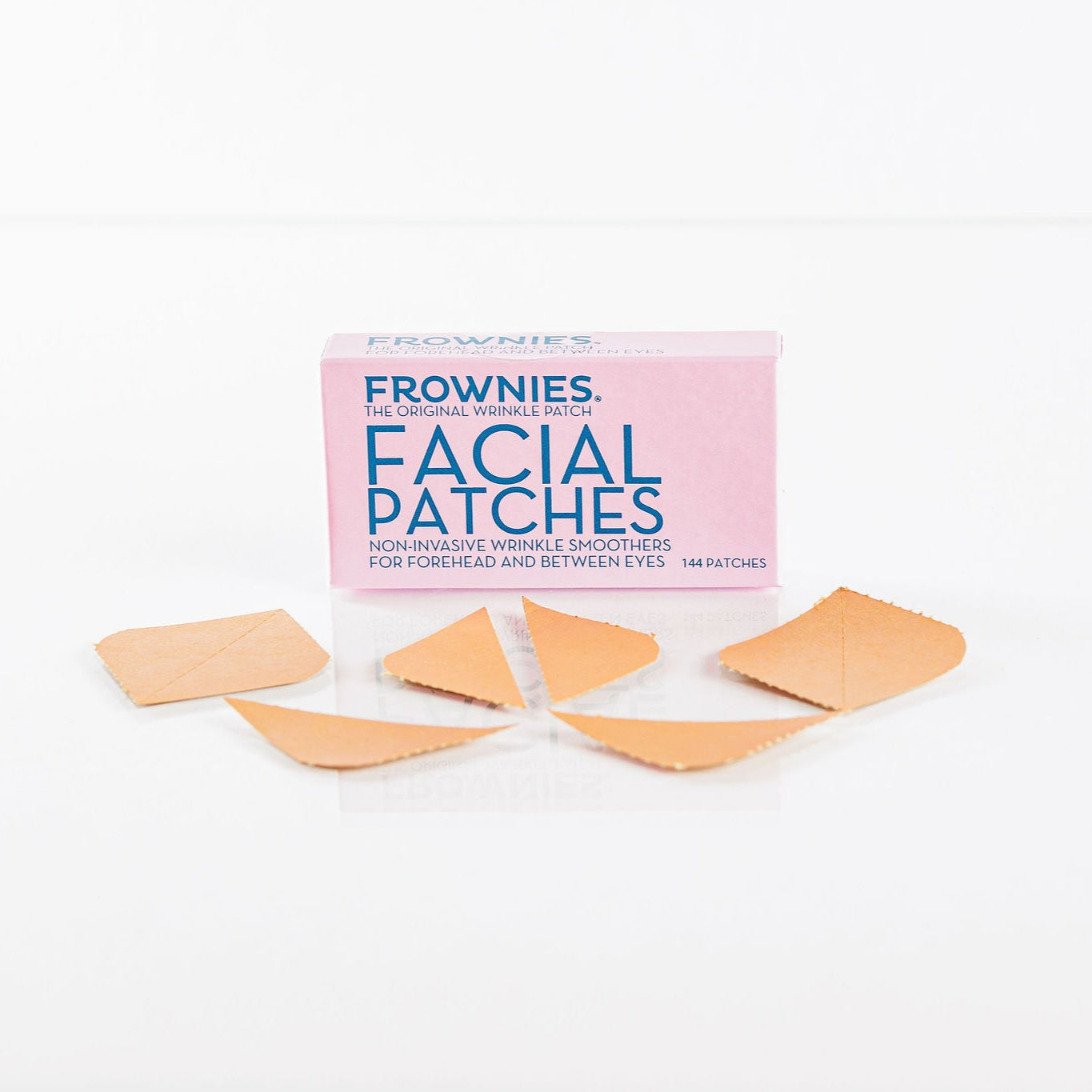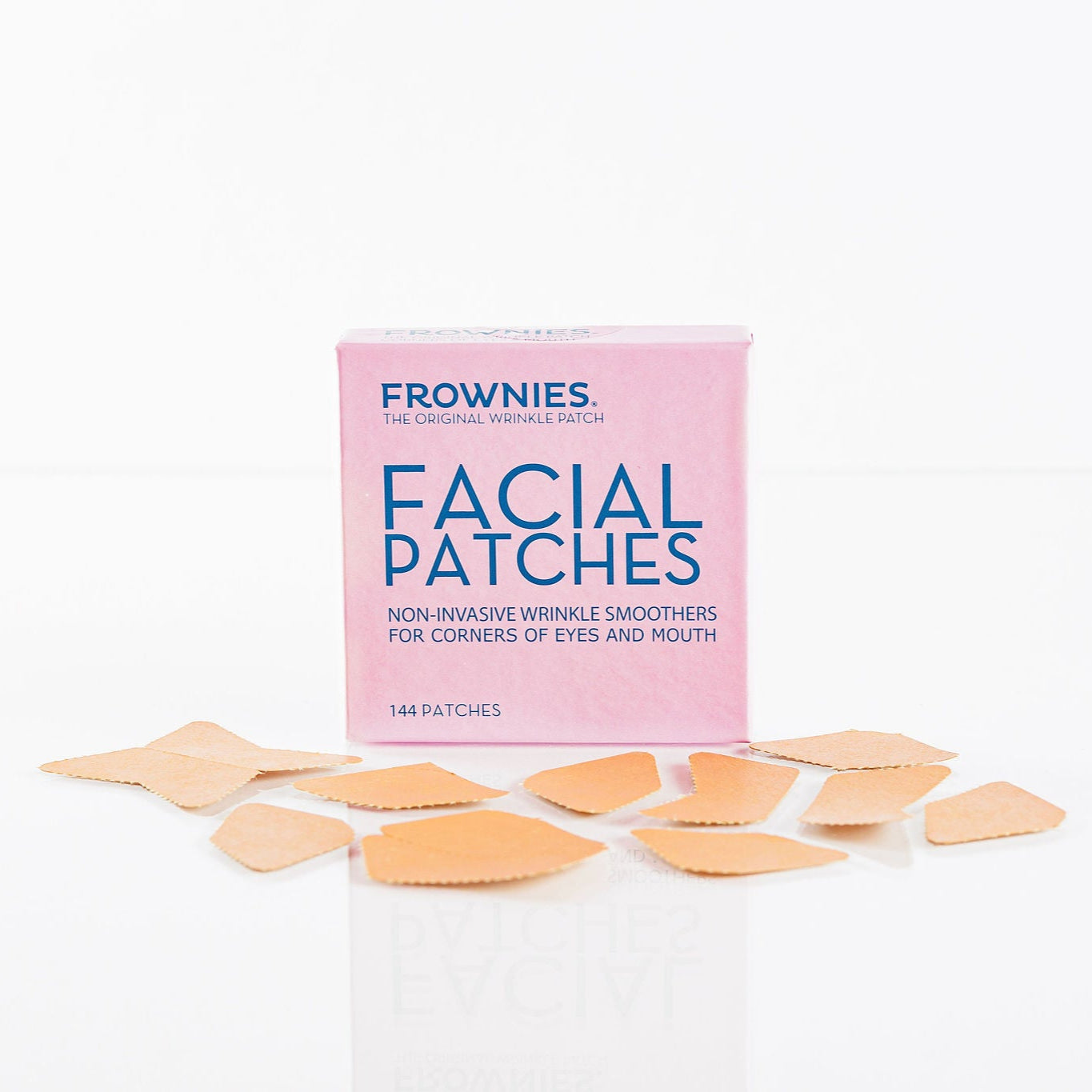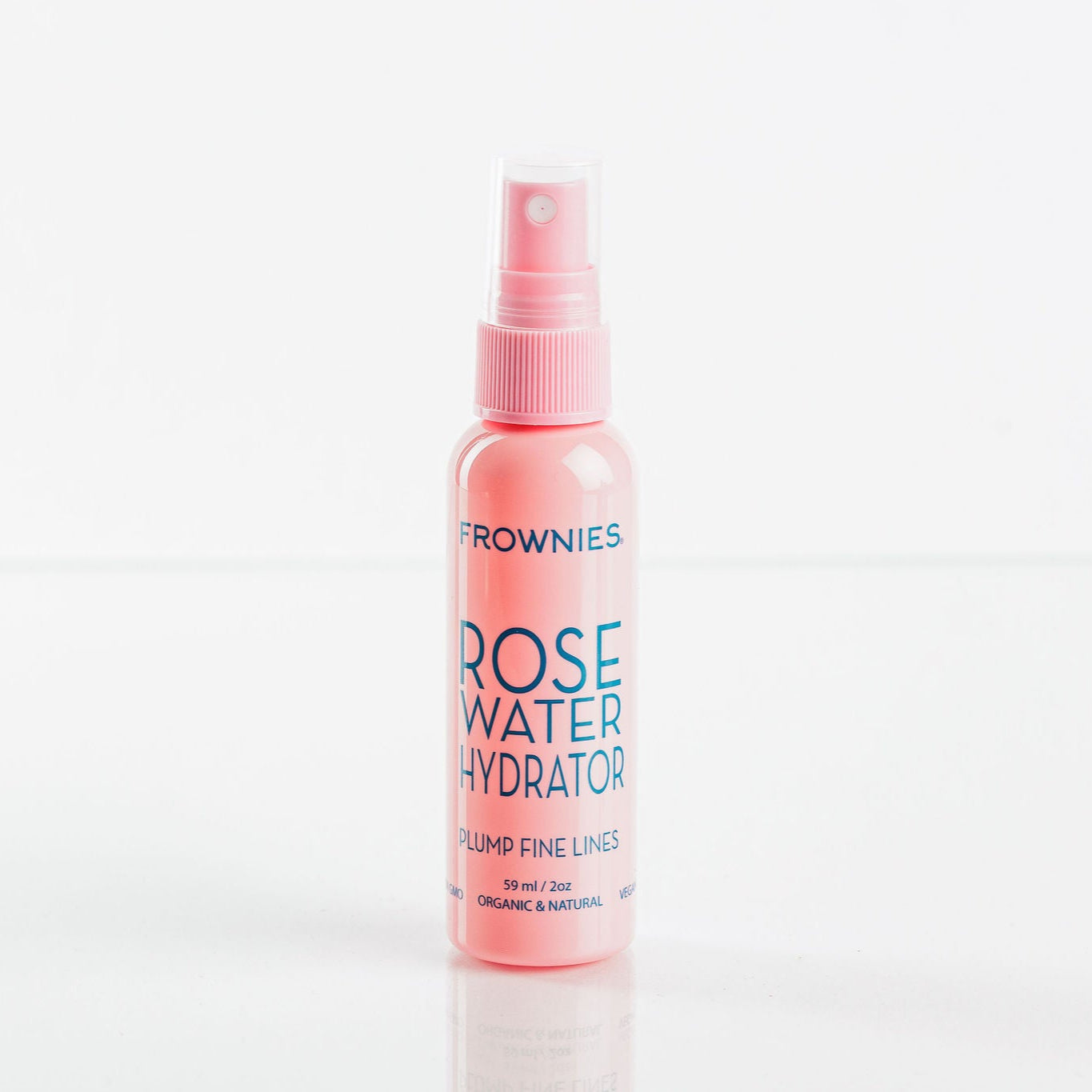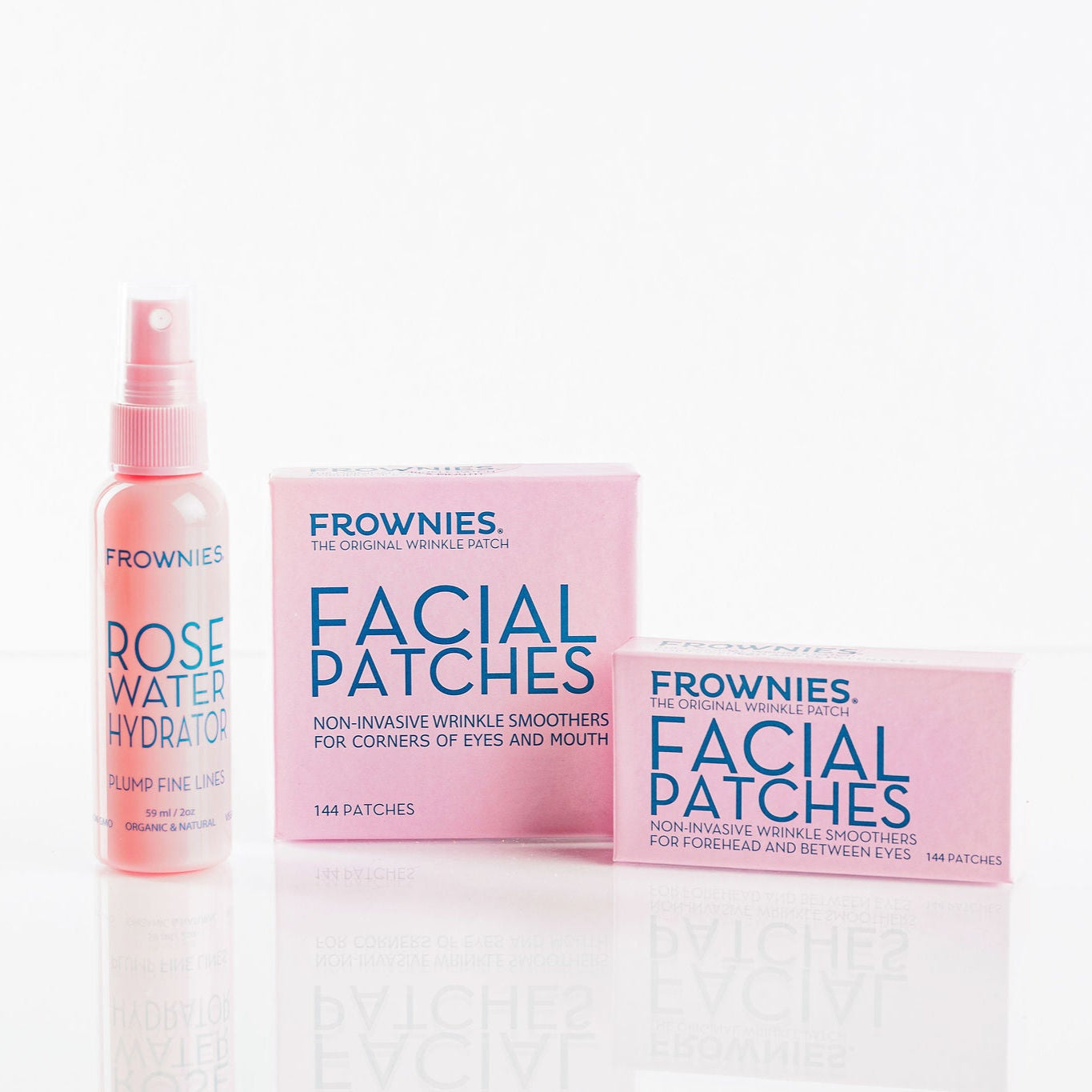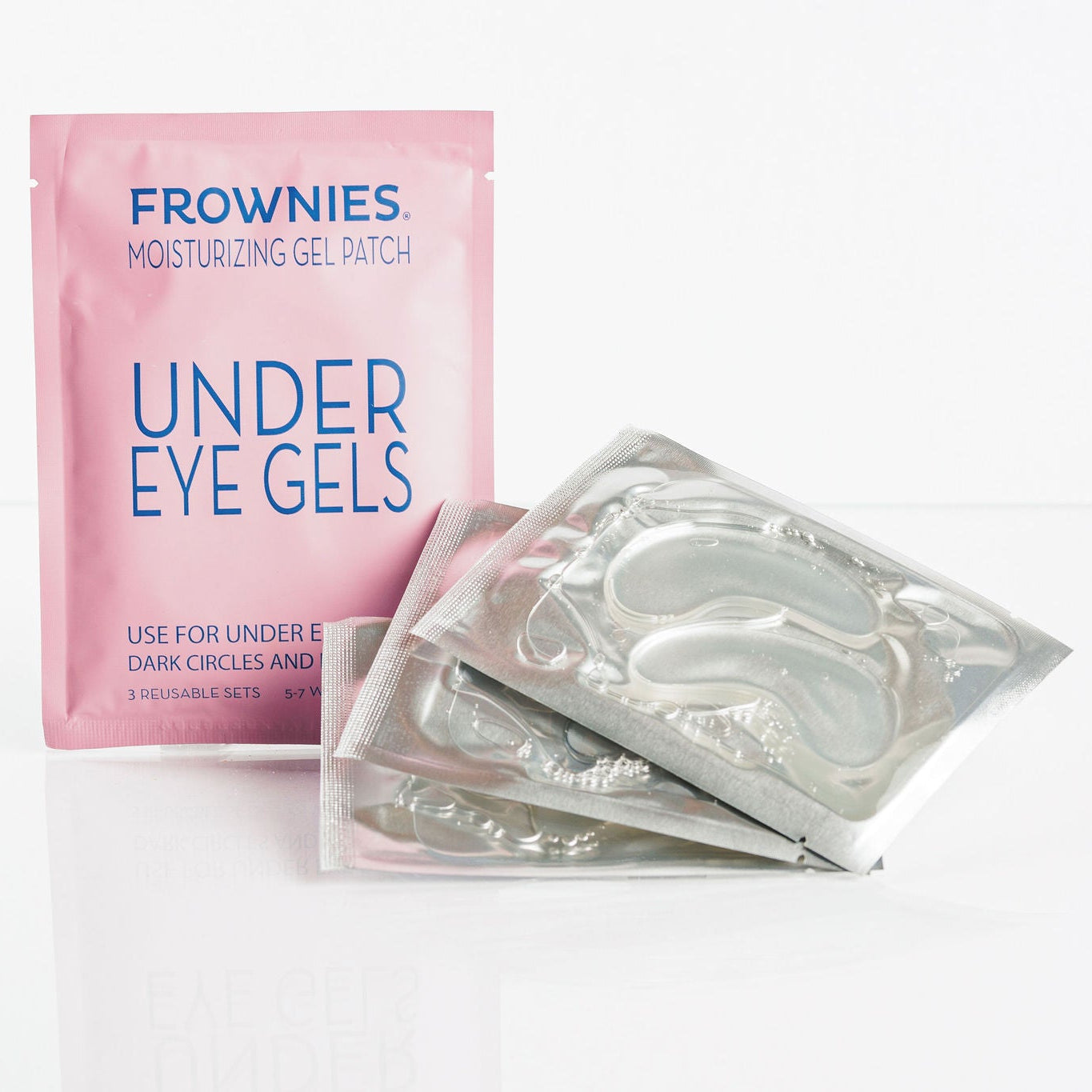
SKIN AND INFLAMMATION
FROWNIES president has been a health and wellness Naturapath for over 30 years. She knows Inflammation is a buzzword in the wellness world and anti-inflammatory diets are all the health rage right now.
Wondering what it actually is to have inflammation, how it affects you and why it’s so bad? Inflammation is not inherently bad. In fact, we need it! Inflammation (in it’s acute stage) is the body’s natural response to heal and protect itself from injury and infection. When the body’s inflammatory response is prolonged, it can lead to a state of chronic inflammation, which is symptom that the immune system is revving in overdrive. Ultimately, chronic inflammation quickly wears down the immune system which is why inflammation is often found at the root of most health issues and diseases today (accelerated aging, autoimmunity, IBS, arthritis, heart disease, obesity, diabetes, dementia and all sorts of cancers).
CAUSES OF INFLAMMATION
- Standard American diet – high in refined sugars, gluten, diary, and hydrogenated oils (just to touch on how bad the norm is)
- Gut health issues
- Stress
- Environmental toxins
- Lack of sleep
- Sedentary lifestyle
Chronic inflammation can show up in a variety of ways including, but not limited to, acne, allergies, weight gain, digestive issues, joint pain, fatigue and depression. However for some people, chronic inflammation can be festering beneath the surface without manifesting observable symptoms and they may not know it’s there! So ask your doctor to include C-reactive protein (CRP), a pro-inflammatory marker released by the liver, as part of your routine lab work.
If you experience any of the above warning signs (or your CRP levels are higher than 1 mg/L) don’t worry–-food is one of the most powerful medicines for fighting inflammation. What you choose to put on your fork will either feed the inflammation fire or extinguish it. The best way to sop the damage from inflammation on a cellular level is to eat a diet full of anti-inflammatory foods. An anti-inflammatory diet is consists of foods that are widely regarded to as healthy, including those high in fiber, omega-3 fatty acids, vitamins, minerals, antioxidants and phytonutrients. Here is a list of foods to keep chronic inflammation in check.
INFLAMMATION FIGHTING FOODS
BLUEBERRIES
Blueberries, and other dark-colored berries, contain a broad range of antioxidants, specifically resveratrol, gallic acid and proanthocyanidins, which protect you from oxidative stress and have been shown to reduce markers of inflammation.
Anti-inflammatory prescription: Include half a cup of blueberries in your diet several times a week, like in a Blueberry Kale Smoothie.
GINGER
Ginger has been a prized food in Ayurvedic medicine for thousands of years owing to its powerful immune-boosting and cleansing properties. It is rich in inflammation-fighting compounds that have been shown to help with pain relief.
Anti-inflammatory prescription: Add one teaspoon of dried ginger powder or one tablespoon of fresh ginger root to your meals a few times a week. A great way to use fresh ginger root is grated and added to sauces and salad dressings; it’s also great in drinks, like a Ginger Lemonade.
CACAO
Cacao is unroasted so it contains up to twice the antioxidants of traditional cocoa which is made from roasted beans. Cacao is a rich dietary source of the mineral magnesium and magnesium deficiency is strongly linked with inflammatory conditions.
Anti-inflammatory prescription: Eat a square of 85% dark chocolate a day (that’s right!) or, better yet, use raw cacao powder and cacao nibs for the antioxidant benefits without the sugar, in a smoothie or Hormone-Balancing Hot Coco.
TURMERIC
Curcumin, the active compound in turmeric, has potent antioxidant and anti-inflammatory properties which helps with everything from pain relief to managing chronic disease. Studies have shown curcumin to be more effective in reducing inflammation and pain than aspirin and ibuprofen (Advil or Motrin)!
Anti-inflammatory prescription: Add ½ teaspoon of dried turmeric powder or ½ inch of the fresh root to your diet a few times a week. Combining turmeric with a little pinch of black pepper may significantly increase the intestinal absorption of turmeric, a savory pancake recipe could include both. Some people may not want to spice their food with turmeric often, so an alternative is taking it daily in supplement form.
GREEN TEA
Green tea is rich in anti-inflammatory polyphenols, particularly EGCG, which is a powerful antioxidant known for inhibiting cancer cell growth and reducing risk for heart disease.
Anti-inflammatory prescription: Replace one of your daily coffees with green tea (coconut milk matcha latte sound yummy?) or try cooled green tea as the liquid base of your smoothie.
LEAFY GREEN VEGGIES
Leafy greens without a doubt are always included in the list of foods for fighting inflation because of their incredible nutrient density! Super rich in antioxidants, vitamin C, A, E, as well as tons of other vitamins, minerals and phytonutrients, leafy greens protect against oxidative stress caused by free radical damage. There are lots of great ones to choose from–-spinach, collard greens, swiss chard, watercress, dandelion greens, mustard greens, etc.–so mix it up people!
Anti-inflammatory prescription: Aim to get in two servings of raw or cooked leafy greens per day! just put them in everything–smoothies, tofu scramble, kale wraps, stir fry, sandwiches, salads, sauted…… get creative and get the greens in already!
CRUCIFEROUS VEGGIES
Cruciferous veggies include broccoli, cauliflower, kale, bok choy, cabbage and Brussels sprouts among others and are invaluable to an anti-inflammatory diet. The flavonoids and carotenoids work together to battle chronic inflammation and reduce cancer risk.
Anti-inflammatory prescription: Include a serving of cruciferous veggies a day. They can be delicious, like in a Cauliflower Rice Tabbouleh, or pureed cauliflower soup.
FERMENTED FOODS
Gut problems like leaky gut and dysbiosis (microbial imbalance) activate the immune system and set off an inflammatory cascade in the body. Your gut microbes team up with immune cells to boost their overall defense, protecting you against bad bacteria and other pathogens and toxins. Introducing good bacteria into your gut via fermented foods will boost your gut’s defenses and reduce chronic inflammation. Fermented foods are lacto-fermented, raw and contain live cultures and enzymes. Some great ones are sauerkraut, kimchi, kombucha, kefir, and yogurt.
Anti-inflammatory prescription: Include at least one of these foods into your diet each day, i.e. add 1 spoonful of sauerkraut or kimchi to a lunch wrap or sandwich, eat yogurt (the blueberries we mentioned) and nuts, or drink 4 ounces of kombucha.
COCONUT OIL
Coconut oil has so many health benefits (boosts metabolism, balances hormones, anti-microbial to name a few) and high levels of antioxidants for healing inflammation is one of them!
Anti-inflammatory prescription: Include at least 1 tablespoon of coconut oil to your diet each day. Blend in your coffee (creates an almost creamy and frothy effect). Add it to your smoothies as a source of good fat to keep you full all morning. Sauté and roast your veggies in it. It may sound strange, but eat a spoonful after lunch to satisfy a sugar craving (I’ve done this so many times). You can even use it as a moisturizer for skin and hair!
There you have it – using food as medicine will totally douse the fire of chronic inflammation! Mentioned were just a few suggestions, but adding a wide variety of nutrient-dense foods will provide an effective anti-inflammatory diet. In addition to diet, be sure you’re also focusing on gut health, managing stress, optimizing sleep, exercising, and minimizing toxins in your environment, food, and personal care products.
